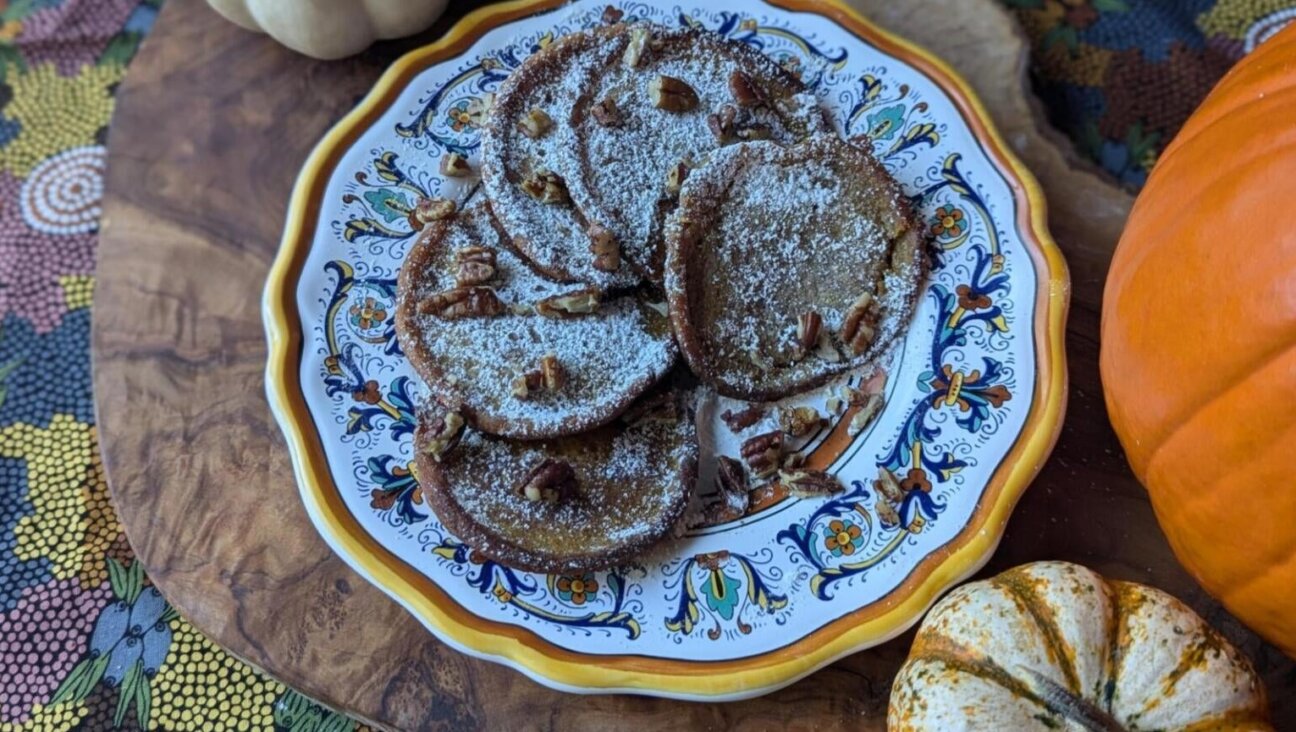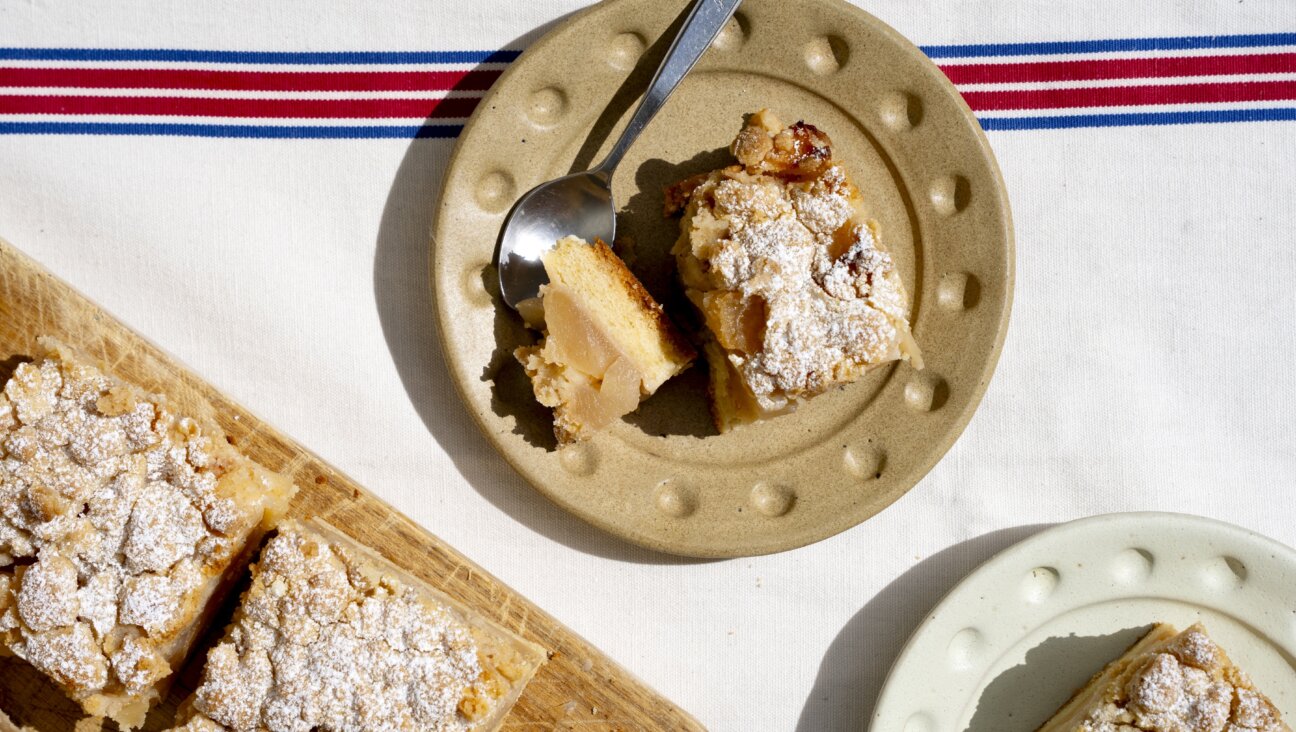Jelly Doughnuts, Step-By-Step

It’s time to make these doughnuts. Image by Gayle L. Squires
You can fill these doughnuts with whatever you’d like — here I used raspberry jam. We cut the dough with a drinking glass, which made a dozen. Obviously the number will depend on the size of your glass.
2 packets (2 tablespoons) dry yeast
¾ cup warm water
1 cup whole milk
¾ cup sugar
6 tablespoon shortening or margarine (Crisco works great here)
1 teaspoon salt
2 eggs
5 to 6 cups flour (or more)
1 gallon (or more) oil (vegetable or peanut oil is best, canola works in a pinch)
1 cup raspberry jam
Confectioner’s sugar
1) Proof. Mix yeast with warm water and a pinch of sugar. After about 5 minutes, it will foam up.
2) Heat. Warm milk in a pan over low heat until it reaches body temperature.
3) Mix. In the bowl of a stand mixer with the paddle attachment, combine sugar, shortening and salt until creamy. Add eggs and mix. Add yeast mixture and milk and continue to mix. Add 2 cups of the flour. Incorporate the remaining flour a half-cup at a time until the dough is very elastic and no longer sticks to the bowl. I had to add a total of 6 cups.
4) Knead. Knead the dough for 5-10 minutes. I started kneading in my mixer and then finished up the last few minutes by hand on a floured counter.
5) Rise. Put the dough in a greased bowl. Cover with a damp towel and let rise in a warm place until it doubles in bulk — at least an hour. I heat my oven to the lowest temperature possible (170º F) and then turn it off and leave the covered bowl inside to rise.
6) Knead. Once the dough has doubled, knead it again briefly.
7) Roll. Roll the dough out on a floured counter until it is about ½-inch thick.
8) Cut. Using a drinking glass, cut the dough into rounds. Re-roll the scraps and cut the rest of the rounds. These (the rounds from the re-rolled dough) will need to rise a little bit longer than the others. Keep the remaining scraps to test the oil.
9) Rise again. Place the rounds on a well-floured cookie sheet (ideally the kind without edges) so the dough is easier to slide right off into the oil. Let rise again until double, at least another hour. The rounds will get nice and round.
10) Heat. Fill a really wide pot with high sides with oil and heat over low to medium heat. Remember those scraps left over? Gently slide one into the oil. If one side browns in 1-2 minutes, the oil is too hot. If it takes more than 5 minutes, the oil is not hot enough. You’ll probably need to test and adjust the temperature a few times. The oil is perfect when you it forms a lot of teeny tiny rolling bubbles around the dropped dough. I checked the oil temperature with a meat thermometer — it was 310º F.
11) Fry! Once you’ve got the oil at the right temperature, lower the cookie sheet close to the surface of the oil and scootch your first roly-poly round into the oil. Tiny bubbles should surround the doughnut. When the first side puffs up and reaches a nice brown (a bit darker than “golden”), flip it over. It took us about 3-4 minutes per side. And we made about 3-4 per batch.
12) Drain. Cover your counter or a few plates with several layers with paper towels. Using a slotted spoon, remove the doughnuts from the oil onto the paper towels to absorb excess oil.
13) Fill. Remove the bulb from the turkey baster and carefully spoon the jam into the top. Flick the edges to help coax the jam down to the tip. Do this over a plate so you don’t make too much of a mess. Put the bulb back on and poke the baster into the side of a doughnut. Slowly squeeze the bulb while gently pulling back to the edge. Repeat with the rest of the doughnuts.
14) Dust. Sift confectioners sugar over the top of the filled doughnuts.
15) Eat. These are best fresh, but they will last a day if well wrapped.
Gayle Squires is a food writer, recipe developer and photographer. Her path to the culinary world is paved with tap shoes, a medical degree, business consulting and travel. She has a knack for convincing chefs to give up their secret recipes. Her blog is KosherCamembert.
















